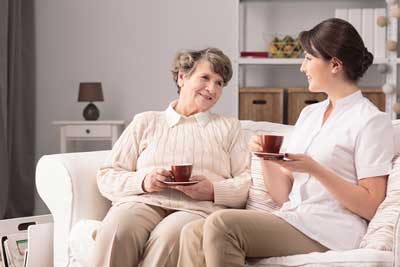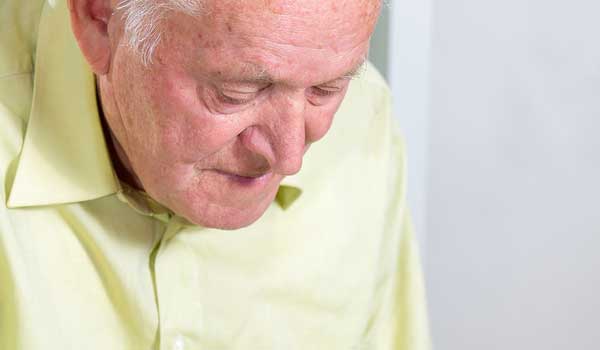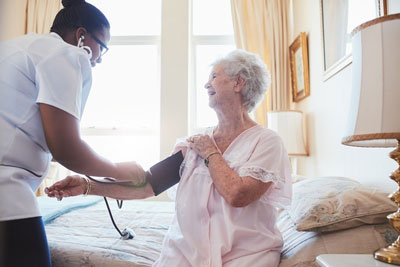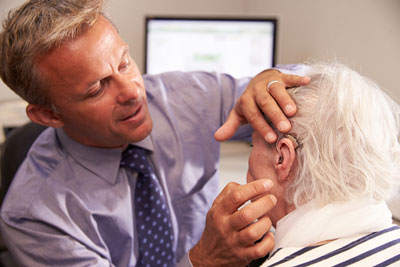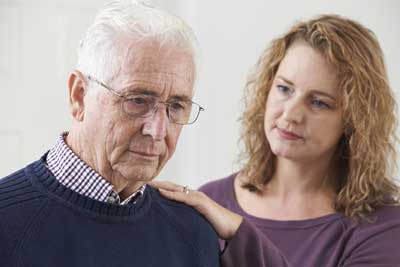5 Traits Required for Home Health Care Providers
[fa icon="calendar'] Apr 10, 2017 5:29:00 PM / by First Choice posted in In-Home Health Care, Caregiver, Professional Caregiver
Beyond the obvious "hard" skills required of home health care providers, what soft skills do you need to succeed? These five traits are a great place to start.
Pets and Home Health Care
[fa icon="calendar'] Mar 28, 2017 1:00:00 PM / by First Choice posted in In-Home Health Care, Aging, Caregiver
Not every decision is clear cut, however. For instance, should you let a senior with failing health continue to own a beloved pet?
Keeping Safe When Providing Home Care Assistance
[fa icon="calendar'] Mar 14, 2017 4:01:00 PM / by First Choice posted in In-Home Health Care, Professional Caregiver
The good news? There are some things home health workers can do to minimize risk and maximize safety while working in non-hospital settings. Read on for a roundup of five tips aimed at keeping in-home caregivers safe.
4 Tips to Help You Avoid Caregiver Stress
[fa icon="calendar'] Feb 17, 2017 11:24:00 AM / by First Choice posted in In-Home Health Care, Senior Care, Caregiver
However, sometimes caregivers fall prey to a different level of stress, one that is not natural or healthy. How can you know if your stress level is approaching this level? And what can you do to handle your stress effectively as a caregiver?
Symptoms of Caregiver Stress and Caregiver Burnout
The Alzheimer's Association provides a list of stress symptoms that caregivers should never ignore. They are:
- Denial of the seriousness of your loved one's condition
- Anger
- Social withdrawal from friends and activities that you once considered pleasurable
- Anxiety
- Depression or apathy
- Exhaustion
- Sleep disturbances
- Irritability
- Inability to concentrate
- Health problems that seem to linger, or follow closely one after another
If these symptoms are not addressed promptly or appropriately, you may fall victim to a more severe condition known as caregiver burnout. With this condition, the symptoms mentioned above become even more pronounced, and your ability to function and provide adequate care for your loved one or even for yourself is compromised.
Considering the serious effects of caregiver stress and caregiver burnout, it makes sense to seek help as soon as you recognize any of the symptoms mentioned above.
Tips for Caregiver Stress
The good news is that you can manage caregiver stress effectively if you pay heed to what your body and mind are telling you. Here are some tips for relieving caregiver stress:
1) Cultivate a smidgen of selfishness: As the primary caregiver for a loved one, you are likely accustomed to putting your needs on the back burner. This, however, is not always a sustainable strategy. Your needs are just as important as the needs of the one for whom you are caring, and you cannot deny that and still remain physically and emotionally healthy.
Practice a mindful approach to self-care. Pay attention to your body and your spirit. Take time each day to re-connect with the inner you, even if it is only for a few minutes.
2) Assert your independence: Caring for a loved one can narrow your world view down to just the small space of your senior's orbit. Resist the inclination to limit your focus to the failing health of your loved one. Assert your independence by remembering who and what you are, apart from your role as caregiver.
3) Breathe: Something as simple as breathing can help you reduce stress. Just as deep breathing can help women endure the pain of childbirth, so too, can deep breathing help you relax. Take a few minutes each day to sit somewhere quiet and simply breathe deeply in and out for several minutes.
4) Tap home health care for help: One of the best ways to relieve caregiver stress is to find outside help to take some of the load off your shoulders. The truth is that, even though you are indispensable to your loved one, there are other people who can take some of the routine tasks off your plate, giving you time to handle more important matters.
Home health care is an excellent way to get help for your senior and relieve your own stress levels in the process. Home health care workers will help your loved one with activities of daily living, such as bathing, grooming, toileting, eating, and so on.
Home health care workers provide respite care so that you can have some time away from a stressful situation. Sometimes respite care for even a few hours can revitalize your spirit to handle your responsibilities.
An added advantage of home health care workers is that your loved one benefits from interaction with someone new as well. This can lower your loved one's stress levels also, making the situation better for everyone concerned.
The Bottom Line
Providing good care for your senior need not send you into debilitating stress. Remaining in touch with your own feelings, taking time to care for yourself, and using available home health care resources can help you to provide your loved one with excellent care, while still maintaining a balanced lifestyle for yourself. Contact us today to request help for your loved one, and take control of the stresses in your life.
Senior Care: Concerns about Chronic Health Problems
[fa icon="calendar'] Feb 7, 2017 11:37:00 AM / by First Choice posted in In-Home Health Care, Senior Care, Caregiver
Older adults living with these and other chronic conditions may find it difficult to manage their illness alone. As a caregiver, you may be wondering if and when to step in to help an aged loved one to shoulder the burden of chronic illness. Here are some factors to consider which will help you provide the support and care your older one requires.
Dealing with Loss of a Patient: When the Need for Home Care is Over
[fa icon="calendar'] Feb 3, 2017 8:20:00 PM / by First Choice posted in In-Home Health Care, Senior Care, Caregiver
When a beloved family member dies, it is natural and expected that the bereaved family will grieve. Often, however, the family and friends of the deceased are not the only ones grieving the loss. Professional home caregivers also feel a great loss when a client dies.
However, unlike the family of the one who passed away, professional caregivers are often expected to simply shut down their feelings of grief and move quickly to a new client assignment. This unrealistic expectation can lead to serious emotional issues for professional caregivers. If someone for whom you provided care for some time has died, what can you do to process your grief and move on?
3 Steps to Providing the Best Home Health Care Possible
[fa icon="calendar'] Jan 11, 2017 2:27:00 PM / by First Choice posted in In-Home Health Care, Professional Caregiver, Career
If you are interested in a career in health care, but you do not want to spend years in school to reach your goals, choosing a career as a home health aide will put you in a position to be truly helpful to patients and impact the lives of patients and their families for the better. What steps can you take to provide the best home health care possible?
In-Home Care for Seniors: Hearing Loss
[fa icon="calendar'] Jan 3, 2017 8:40:00 AM / by First Choice posted in In-Home Health Care, Special Needs, Senior Care
Lila's experience is not unique. There are many cases of families who discover that what they thought to be signs of dementia in their aged loved ones are, in actuality, signs of hearing loss. According to the National Institute on Deafness and Other Communication Disorders (NIDCD), approximately one in three people between the ages of 65 and 74 has hearing loss and nearly half of those older than 75 have difficulty hearing.
How Homecare Providers Can Help Their Patients Enjoy the Holidays
[fa icon="calendar'] Dec 18, 2016 6:45:00 PM / by First Choice posted in In-Home Health Care, Aging, Holidays
Why Seniors May Experience the "Holiday Blues"
Psychotherapist Joyce Marter, LCPC, points out several reasons for seniors to feel especially lonely around the holidays. Perhaps your patient is grieving for a beloved mate who has died, or perhaps he or she is having trouble adjusting to physical or mental decline that will alter the pattern of the way holidays have been traditionally celebrated in the family.
Home Care for Seniors & Early Signs of Dementia
[fa icon="calendar'] Dec 13, 2016 6:57:00 PM / by First Choice posted in In-Home Health Care, Special Needs, Aging, Dementia
If you are providing care for an aged love one, you may also have some concerns about cognitive changes in your senior. What is normal senior forgetfulness and what are warning signs of Alzheimer's? Here are some signs provided by the Alzheimer's Association to help you determine if and when to consult with a physician concerning your loved one's mental health.
Memory Loss: By far, the most recognizable symptom of Alzheimer's is memory loss. It is perfectly normal to forget a name or an address once in a while. But, if your senior's memory lapses are interfering with his or her daily life, then it is time to consult a doctor.

